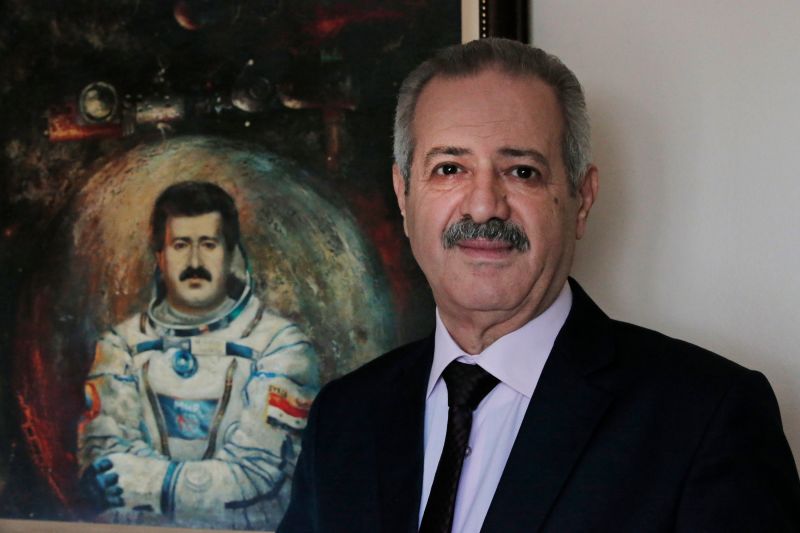The tapestry of the Space Age seems to brighten in almost every corner of the globe, marking the progress of various countries in their quest to conquer the unchartered territories of outer space. Syria, a significant nation in the Arab World, was no exception to this trend. The country etched its mark in space exploration history through the remarkable journey of its first astronaut, Mohammad Faris. Regrettably, this stellar figure recently breathed his last in exile, leaving behind a pervasive legacy that will continue to inspire beyond borders and generations.
Mohammad Ahmad Faris, born in 1951 in Aleppo, Syria, was a distinguished Syrian military aviator and astronaut. Before stepping into his journey as an astronaut, Faris had already earned numerous distinctions in the military field. He joined the Syrian Air Force in 1970 and ascended the military ranks rapidly, gaining notoriety as an Air Force Colonel. However, it was in 1987 that Faris earned international fame when he took part in a historic space mission as part of a Soviet-led Intercosmos program. This achievement not only placed him among the celestial ranks of the world’s astronauts but also etched his name indelibly in the annals of Syrian history.
The mission, aboard the Soyuz TM-3 spacecraft, made Faris the first Syrian — and the second Arab following Sultan bin Salman bin Abdulaziz Al Saud of Saudi Arabia — to travel into space. During the seven-day mission, Faris carried out scientific experiments and spent almost an hour in a craft that was docked with the Mir space station. The images of Faris, floating weightless in the void of space, dressed in his astronaut suit bearing the Syrian flag, were a sight of pride and achievement for Syria and the Arab world.
However, Faris’ journey was not merely confined to the distant orbits of the cosmos. Following his return to Earth, his status as an astronaut provided him with a unique platform from which to comment and reflect on human, specifically Arab, experience and potential. He became a vocal advocate for scientific education in Syria and the Arab world, convinced that science and knowledge held the keys to societal progress and prosperity.
Much like his inspiring ascent into space, Faris’ later life was also marked by remarkable courage and resilience. As the Syrian civil war broke out in 2011, Faris, an avowed nationalist, stood firmly against Bashar Al-Assad’s regime. This led to him seeking asylum in Turkey in 2012, as his dissension was not tolerated by the government. Despite the challenging circumstances, Faris used his position to call for peace, the end of the civil war, and the formation of a new democratic Syria.
The demise of Mohammad Faris in exile marks the end of a life moulded by extraordinary experiences and steadfast resilience. Despite his achievements being marred by the reality of his political exile, Faris’ life serves as a testament to the infinite reach of human aspirations. His journey from the skies of Aleppo, soaring above the Earth, to his final breaths in exile in Istanbul, is marked by indelible courage, undying aspirations, and a vision for enlightenment and peace. Regardless of the political or territorial borders that marked his life’s journey, Faris will always be remembered as the ‘Armstrong of the Arab World’.




